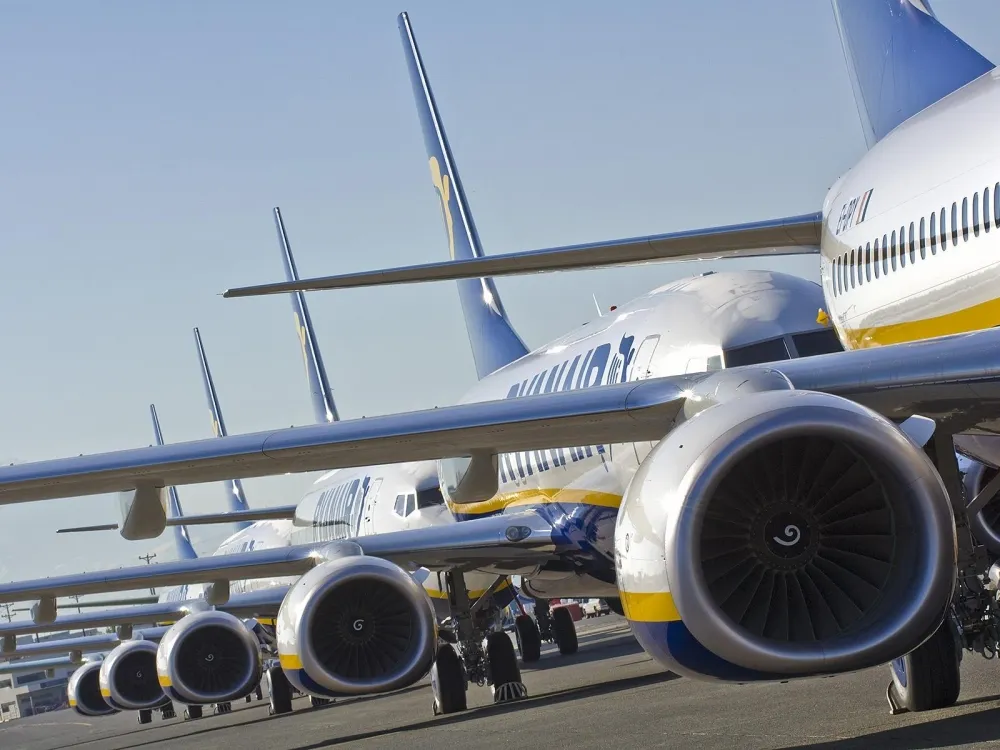
Ryanair blames base closures on MAX delays
Dec 06, 2019

Ryanair has attributed its decision to close several of its bases to delays in the delivery of Boeing 737 MAX aircraft. The low-cost airline has faced operational challenges due to the postponed arrival of new planes, which has hindered its ability to expand and maintain service at certain locations. This situation has led to a reassessment of its network, resulting in the closure of bases that are no longer sustainable under the current fleet constraints. Ryanair remains focused on optimizing its operations and plans to adjust its strategy in response to the ongoing aircraft delivery issues.
Ryanair, Europe's largest low-cost airline, has faced significant challenges in recent years, a situation exacerbated by the delays in delivery of Boeing's 737 MAX aircraft. The airline's recent announcements have highlighted how these delays have forced it to make difficult decisions regarding its base operations across Europe. In this article, we delve into how Ryanair blames these base closures on MAX delays and what it means for the airline's future.
Understanding the Impact of MAX Delays on Ryanair
The delays in the Boeing 737 MAX deliveries have had a cascading effect on Ryanair's operational strategy. Ryanair had planned to expand its fleet with these new aircraft, which are designed to be more fuel-efficient and have lower operating costs. However, the prolonged delay in delivery has left the airline with a gap in its operational capabilities.
According to Ryanair's CEO, Michael O'Leary, the airline had anticipated a robust growth trajectory based on the expected delivery of new MAX aircraft. With these aircraft not arriving on schedule, Ryanair has had to reassess its growth plans, leading to the closure of several bases across Europe. This decision is not taken lightly, as it impacts both employees and the local economies relying on Ryanair's service.
Base Closures: A Strategic Move
Ryanair's base closures are primarily a strategic move aimed at streamlining operations in light of the MAX delays. The airline has identified bases that are underperforming or less critical to its overall strategy. The following table outlines some of the bases that have been affected:
| Base Location | Reason for Closure | Impact on Operations |
|---|---|---|
| Barcelona | Low demand | Reduced flight frequency |
| Frankfurt | Operational inefficiencies | Increased cost per flight |
| Dublin | Resource allocation | Reassignment of aircraft |
These closures are a direct response to the challenges posed by the delays in MAX deliveries. Ryanair has made it clear that without the additional capacity provided by the new fleet, maintaining these bases would not be financially viable. The airline is focusing on its most profitable routes and bases in order to maximize efficiency and profitability.
The Future of Ryanair Post-MAX Delays
Looking ahead, Ryanair remains optimistic despite the current setbacks. The airline has plans to continue its expansion, albeit at a slower pace than initially anticipated. The following key areas will shape Ryanair's strategy moving forward:
- Fleet Modernization: Ryanair is still committed to acquiring the Boeing 737 MAX aircraft, which will enhance its operational capacity once delivered.
- Cost Management: The airline is focusing on reducing operational costs to remain competitive in the low-cost airline market.
- Market Adaptation: Ryanair is adapting its market strategy to focus on destinations with higher demand and profitability.
While the MAX delays have posed challenges, Ryanair's proactive approach to managing its operations and focusing on profitability will serve it well in the long run. The airline's resilience and adaptability are key traits that have allowed it to thrive in a competitive market.
Conclusion: Navigating Challenges and Opportunities
In conclusion, Ryanair's decision to close several bases can be directly linked to the delays in Boeing's 737 MAX aircraft deliveries. As the airline navigates this challenging landscape, it remains committed to maintaining its position as a leading low-cost carrier in Europe. The focus on strategic base closures, cost management, and fleet modernization will be crucial in ensuring the airline's long-term sustainability and growth.
As Ryanair continues to adapt to the ever-changing aviation landscape, its ability to respond to challenges like the MAX delays will ultimately determine its success in the future. By concentrating on its core strengths and optimizing its operations, Ryanair is poised to emerge from this phase stronger and more competitive than ever.
Related Articles

Explore Thailand: The Best Islands to Visit for Paradise, Adventure, and Relaxation

The Ultimate Guide to the Best Islands in Thailand for Your Next Getaway

Do babies need passports? How to get a passport for a newborn

How to get a U.S. passport fast: here’s how to expedite the process

What is Mobile Passport Control: 5 reasons why you should use it

SENTRI vs. Global Entry: A detailed guide

Do you need a passport to go to the Bahamas? Let’s find out

Do you need a passport to go to Mexico? A detailed guide

Do you need a passport to go to Canada? We got the answer

Do You Need a Passport for a Cruise: An Essential Travel Guide

Booster Seat Requirements: All the Rules to Follow in Your Rental Car

What Are the World’s Most Powerful Passports, and How Does Yours Rank?

How to Take a Passport Photo at Home: A Helpful Guide

You've got to have heart! Southwest's new livery

Your opinion: Should water be free on low cost carriers?

Young women bolder than guys as solo travellers
